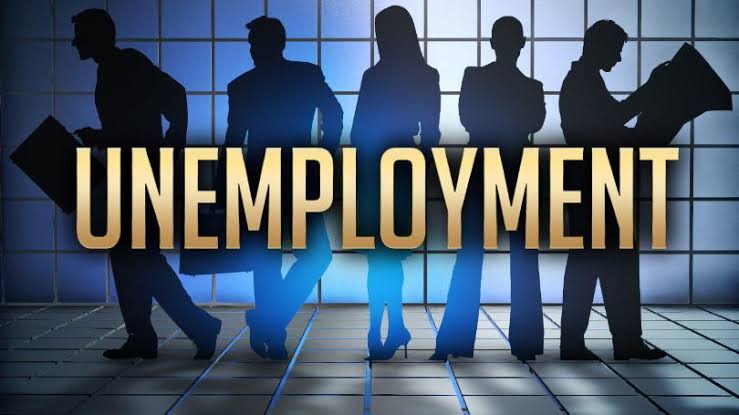Asked by
Birds of the sky (2 Golds)
Sunday, 30 Aug 2020, 11:08 PM
at (News
Editorial)
|
|
|
|
Answer(s):
============================= ~ The Rise Of Unemployment Problem Due To Covid - 19 & Strategies To Overcome It ~ ============================= " Covid - 19 had plunged the world of work into unprecedented crisis." °°°°°°°°°°°°°°°°°°°°°°°°°°°°°°°°°°°° ~ Guy Ryder , International Labour Organisation Head ~ _____________________________ As the hellacious global outbreak spread, the coronavirus sucked workers from every corner of the world economy. Among those who lost their jobs, many were furloughed, left with a sense of hope that their situations were impermanent. Freelancers and self-employed entrepreneurs found themselves without gigs. Others were laid off. Despite the virus’s broad sweep, the economic impact is affecting parts of society differently, and the jobs crisis risks turning into a social crisis. Lockdowns and business closures have hit the most vulnerable workers especially hard, and they are the ones who will have the toughest time finding new jobs or regaining lost income. __________________________ ~ Global Impact => °°°°°°°°°°°°°°°°°°°°°°°°°°°°°°°°°° " More than one in six young people have stopped working since the onset of the coronavirus pandemic while those who remain employed have seen their working hours cut by 23 percent ". °°°°°°°°°°°°°°°°°°°°°°°°°°°°°°°°°°°°°°°°°° ~ The International Labour Organization ~ ________________________ ☞ Worldwide, an estimated 14% of working hours were lost in the second quarter, (equivalent to 400 million full-time jobs), due to the pandemic, according to the ILO. ☞ It will take years for the global economy to recover from the jobs taken away by the pandemic, and in Europe the recession will be significantly deeper than forecast just two months ago.Those are the findings in two reports, from the Organization for Economic Cooperation and Development and the European Commission, that provided the latest readings on how dire and deep the economic impact of the coronavirus will be. ☞ In a matter of a few months, the Covid-19 crisis wiped out all improvements in the labor market made since the end of the 2008 financial crisis. The number of job losses, in fact, has been 10 times greater than the hit inflicted during the first months of the 2008 global financial crisis. ☞ Oxfam, the international aid group, says that more than half a billion people, representing 6 percent to 8 percent of the global population, can be pushed into poverty as a consequence of Covid-19 if the world’s richest countries do not act to help its poor peers. ☞ Global economic activity will probably fall 6% in 2020, according to forecasts from the Organization for Economic Co-operation and Development (OECD), while a measure of unemployment will climb to 9.2%, from 5.4% in 2019. __________________________________ Impact On Bangladesh => °°°°°°°°°°°°°°°°°°°°°°°°°°°°°°°°°°°°° " Covid-19 has eaten away the jobs of 16 million people in Bangladesh. The pandemic has resulted in unemployment of around 39% of the informal sector workers." ~ According to a recent estimate by the Bangladesh Institute of Development Studies (BIDS) ~ _________________________________ ☞ 16 million people lost jobs to Covid-19.The continuing lockdowns and economic fallout of the Covid-19 pandemic could leave tens of millions of workers jobless in coming months and have an outsized impact on the most impoverished countries like Bangladesh. ☞ 39% informal sector workers unemployed. ☞ Private investment now below 13% of GDP. ☞ High government borrowing squeezed private sector credit ☞ The World Bank forecasted that South Asia might post 1.80 per cent to 2.80 per cent GDP growth which is still a better scenario than some other regions. On the contrary, employment might shrink as the pandemic continues. It may also create a frail labour force, which will push the development goals far-off to reach. ☞ It is predicted that the pandemic will increase the number of less educated unemployed people. According to ILO, Bangladesh has more than 85.0 per cent informal labour who are extremely vulnerable. The hardest hit of the impact would involve marginalised low-income people, many of whom are daily wage-earners and self-employed. °°°°°°°°°°°°°°°°°°°°°°°°°°°°°°°°°°°°°°°°°°° ~ Strategies To Overcome => °°°°°°°°°°°°°°°°°°°°°°°°°°°°°°°°°°°° "Keeping markets open to trade will play an important role to foster our recovery" °°°°°°°°°°°°°°°°°°°°°°° ~ World Trade Organization Director - General Roberto Azevedo ~ °°°°°°°°°°°°°°°°°°°°°°°°°°°°°°° Firstly, we must change what got us here, and boost workplace security and democracy. The government should also introduce new social safety net programmes targeting the labour market. In this context, the employment guarantee scheme for the next six months for vulnerable people can be seriously considered. The modalities can be sorted out. Secondly, because so many have already lost their jobs, we need an immediate freeze on dismissals, as France, Italy and Spain have done, and to cancel the dismissals that have taken place since March.We must remember that fear will dissolve with a credible recovery plan. Third, and ultimately, the government has to provide everyone with a job guarantee and a fair income by filling the gaps of our social security system. This is what the Universal Declaration of Human Rights requires: universal social security and the right to work for fair pay. ============================= Answered by Birds of the sky (2 Golds) Sunday, 30 Aug 2020, 11:10 PM |
Related Q/A:
|
|
|
|
|
|
|
|
|
|
